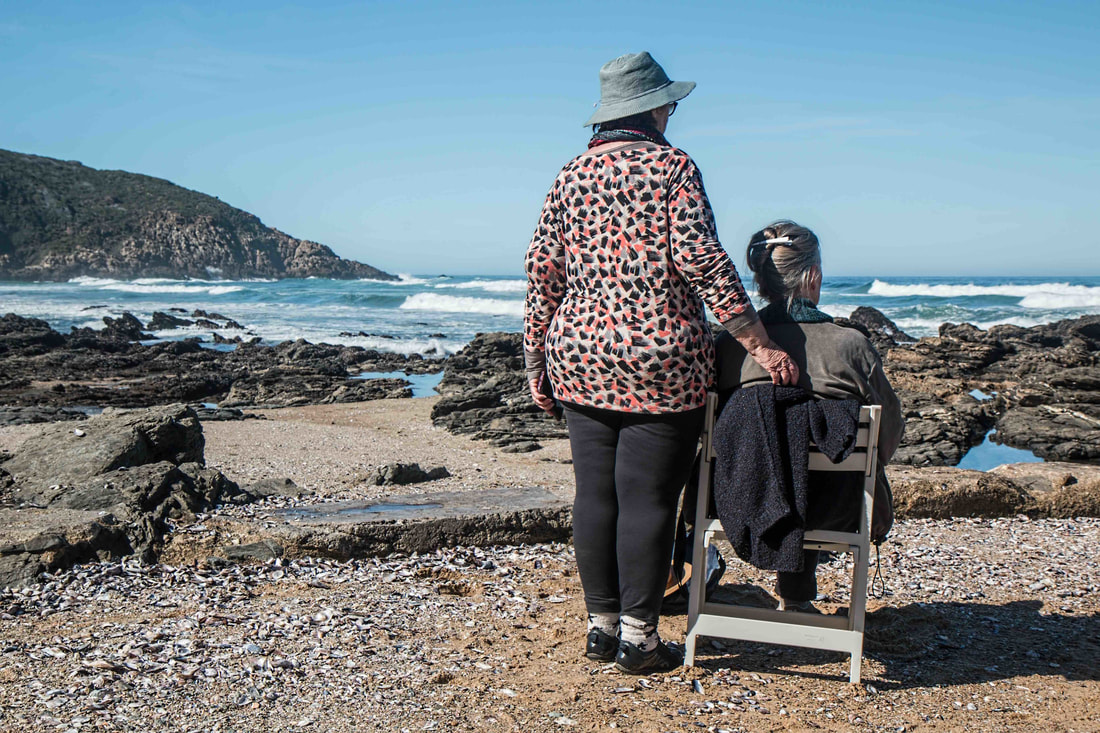|
For 15 years after my father died, my mother managed her finances without a hitch. She had been educated at a top woman’s college and continued to teach at Fairleigh Dickinson University in Teaneck until her late 70s – driving 100 miles round-trip up and down the Garden State Parkway, rain or shine or snow.
Then one day she confessed to me that she no longer felt comfortable handling money, paying bills or managing her investments. My initial reaction was one of disbelief. I’d never known a smarter, more capable person – woman or man. But after reviewing her checkbook and discovering a pile of late bills, I realized she was right. She asked me to contact the branch managers at two local banks where she had accounts, her investment advisor at TIAA, her attorney and the manager of her condominium building in Highlands. I found them all to be very forthcoming with information and advice. The reason for this only dawned upon me later: Years earlier, my mother had signed a power-of-attorney (POA) that authorized my sister and me to act on her behalf when she no longer was capable of managing her own affairs. The POA proved a godsend, allowing me to cut through red tape and quickly get a handle on my mother’s finances. In retrospect, I’m very thankful she had the foresight to establish power of attorney. But what, exactly, is a POA and how does it work? Are there any risks? How much does it cost? For answers, I turned to Dana A. Bennett, an attorney with offices in Red Bank and Lakewood. Bennett, who has degrees from Villanova, Seton Hall and New York University, has been practicing trust-and-estates law for more than 20 years. Her credentials include chair of the Monmouth County Probate Committee and past president of the Estate and Financial Planning Council of Central New Jersey. She lives in Marlboro with her husband and two daughters. Q: What does “power of attorney” mean? A: A Power of Attorney (POA) is a legal document in which the principal (i.e., the person executing the POA) appoints an agent to assist with the principal’s financial affairs. The POA can be drafted to be effective immediately or conditioned on the principal’s incapacity. The POA does not strip the principal of any power; it merely enables someone to help with financial matters if the principal so desires. The agent under a POA has a fiduciary duty to act in the principal’s best interest. Q: Who needs to consider setting up a POA? A: Everyone 18 years of age and older should consider setting up a POA. Q: What are the potential consequences of not having a POA? A: If a person becomes incapacitated and does not have a POA, then a family member or friend must file a court action seeking legal guardianship over the person in order to pay the incapacitated person’s bills and handle their finances. The cost of a typical guardianship proceeding is several thousand dollars. Spouses do not have an automatic right to access each other’s financial accounts. Q: What advice can you offer when it comes to choosing an individual to serve as a POA? A: The person you appoint as your agent under the POA should be someone you trust implicitly with your money. The agent should also be someone who is well organized and would have sufficient time to devote to your financial affairs. Q: Does a POA grant unlimited power to make decisions on behalf of an elderly person, including financial decisions? A: Most POAs are very broad and allow the agent to do anything financial-related on the principal’s behalf. However, it is possible to sign a “limited” POA. A limited POA, for example, might give the agent access to one particular bank account. Q: What steps are involved in setting up a “POA”? A: Since a POA is a legal document with serious implications, prudence dictates that you see an estate-planning attorney to prepare a POA. Q: How much does it cost to draft and finalize a POA? A: While attorney fees vary, the typical cost is $175-$250. Q: Once a POA is finalized, can it ever be amended? A: You can revoke or amend a POA at any time as long as you are deemed competent. If you make any changes, you should immediately notify the agent under the POA and any financial institution that may have been given a copy of the POA. For more information about setting up a POA, Bennett can be reached at 732-268-7520. Her website is www.bennettwyatt.com.
1 Comment
5/10/2018 09:36:17 pm
I sometimes think my mother really thinks I don't love her and I am only thinking about myself. She never lets me see her bank records and she never wants me to have anything to do with her properties. She always says I am too lazy to work and I am only waiting for her to die so I can rent out her properties. She can be a very difficult person to deal with so I don't think she will allow herself to sign a power of attorney. She will be paranoid. I guess I can't do anything about this as of the moment.
Reply
Leave a Reply. |
AuthorT.J. Foderaro Archives
February 2020
Categories
All
|
Copyright © 2023, Twin Lights Home Care, All RIghts Reserved

 RSS Feed
RSS Feed
